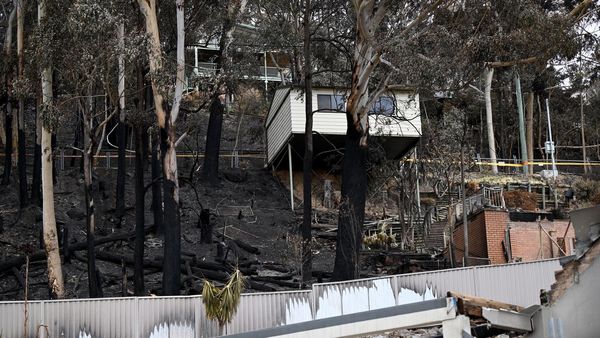Energy experts have estimated how much it'll cost you to celebrate Christmas over the course of three days.
With the cost of living crisis already putting pressure on families, many will be concerned about how much their energy bill will climb over the festive period.
The prices of food, fuel and electricity have all soared in recent months, with people eager to save any money they can and keep track of where their money is going.
Thankfully, energy specialists at Bionic have calculated the average cost of appliances you're likely to use at Christmas and how they will affect your bills.
Wales Online reports that they have also came up with some helpful tips on keeping costs down during what is already a very expensive time of year.
Here's everything that they found, which will hopefully help people to save money this Christmas.
Cost of Christmas cooking and washing dishes
When preparing a Christmas feast, it may feel as though the oven is constantly being used and adding to your energy bill.
A typical electric oven uses about 3,000W of power which means it currently costs about £1.02 an hour to run. If the oven is on for three hours when cooking a Christmas roast, the cost will be £3.06. A typical electric hob uses 2,000W of power so will cost 68p per hour.
The average dishwasher uses between 1.2-1.5 kWh per load but this can vary depending on the running cost of your specific model, the cycle you use and your current energy tariff.
Your dishwasher’s kWh will be printed either on the energy rating label or in the manual. If your dishwasher runs on 1.5 kWh for a 1 hour cycle and your energy costs 34p per KwH (the average under the price cap) the calculation will be: 1.5 x 34 = 51p for 1 load.
How to save money
- Consider using a lower-cost appliance to prepare your food, such as a slow cooker or air fryer. A slow cooker costs just 5p per hour to run and is considered the most energy efficient kitchen appliance.
- Turn the hob off before the end of the cooking time when you're boiling vegetables, as the heat remaining will continue to cook the veg
- Make sure the timings are all right for your Christmas dinner, cooking as many items as you can at the same time to cut down on the oven use.
Make sure to only run your dishwasher on a full load to be cost efficient, and consider using your machine’s eco setting.
If you have an older dishwasher model with a low energy rating, it could be time to invest in a new, more efficient machine to save money in the long term.
Cost of running Christmas lights

These should have the wattage on the label or the instructions.
LED lights will have a much lower wattage, so will use significantly less energy. Once you have the wattage of your lights, divide it by 1000 to find the kWh. This is how much energy the lights will use in the hour.
If your lights run on 5-watts , divide 5 by 1000 to convert to kilowatt-hours, giving you 0.005 kWh. If you want to use your Christmas tree lights for the evening for 3 hours, multiply 0.005 by 3 to get 0.015kW. Your lights will use 0.015kW in those 3 hours. If your energy costs 34p per kWh, multiply 34 by 0.015 and you will have the cost to run your lights, which is 51p for 3 hours.
How to save money
- LED lights run on around 25% of the wattage of incandescent lights, so consider swapping to these if you haven't already.
- Only switch the lights on in the rooms that are being used and turn them off when not in use.
- You should only have the lights on when it's dark outside.
- Consider battery powered lights instead of mains powered ones. However, if you plan on using them for long periods of time, the batteries can run out and could end up being more expensive. If you want to put lights outside, solar paneled outdoor lighting could be a good option.
Cost of watching TV during Christmas
This generally depends on the size and model of your TV. It will have an energy efficiency label on it, stating the kWh - and to find the running cost per hour, you can multiply the kWh by the cost of your energy per kWh.
Media regulator Ofcom found that in 2021, we spent an average of 5 hours watching TV per day or 35 hours weekly. If your television runs on 60 watts, this can be divided by 1000 to calculate the kWh. 0.06 kWh can then be multiplied by your energy cost per kWh to find the cost over 1 hour. 0.06 x 34 = £2.04. This would rack up to £71 if the TV was used for 35 hours in a week.
How to save money ,
- Switch your TV off at the wall when it's not being used
- Turning down the brightness will also reduce running costs
- Limit your screen time by taking a walk with your family or playing a board game
Cost of heating during Christmas
The cost of running your central heating will depend on the type of system you have installed, how well your home is insulated, the size of your home and the overall energy efficiency of your property. Gas central heating is the most common type in the UK and is the cheaper option currently, due to skyrocketing electricity prices. Checkatrade have calculated that a 24 kW gas boiler costs £2.76 an hour to run on mains gas.
How to save money
- Use your central heating instead of relying on portable heaters, as these are much more expensive to run
- Turn your thermostat down by one degree - it could cut your heating bills by 10%
- Installing a heat pump could reduce your boiler usage by 80%, as you'll only pay for the electricity used to run it
Overall costs
Bionic have estimated that you could rack up a bill of around £100 over Christmas Eve, Christmas Day & Boxing Day just by using your electrical appliances.
This calculation is based on using the oven for 9 hours, the dishwasher for 3 loads, your Christmas lights for 15 hours, the television for 5 hours per day, your central heating system for 5 hours per day and a portable heater for 2 hours per day, over the 3 Christmas days.
Don't miss the latest news from around Scotland and beyond. Sign up to our daily newsletter here.







